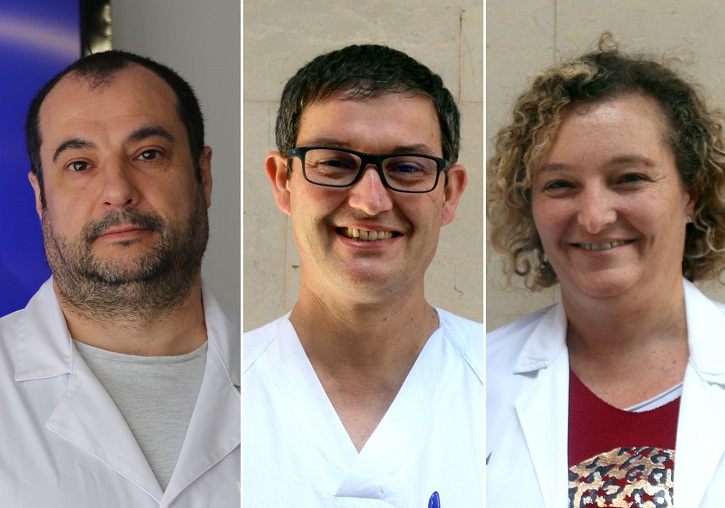Identified a mutation in a gene as a possible cause of high cholesterol and glucose levels
- Scientific Culture and Innovation Unit
- December 27th, 2022

Researchers from the University of Valencia, the INCLIVA Health Research Institute, the Valencia Biomedicine Institute (CSIC), the Valencia Clinical Hospital and the Carlos III Health Institute have identified a mutation in the SREBF2 gene as a possible cause of high levels cholesterol and glucose, cardiovascular risk factors. The results of the research have recently been published in the journal Biomedicines.
Autosomal Dominant Hypercholesterolemia (ADH) is characterised by very high levels of total cholesterol and LDL cholesterol. It is a disease of genetic origin, but the responsible gene is only known in 80% of patients. The LDLR gene is the cause of the disease in most patients and there are other known genes, such as APOB and PCSK9, which are responsible for approximately 1% of cases.
The main objective of the research, in which Inés Pulido and Julián Carretero, from the Department of Physiology of the University of Valencia and Sergio Martínez Hervás, from the Department of Medicine, have participated, was the identification of new genes that could be responsible for ADH, which would help to detect many patients with this disease and advance in them both the application of adequate treatment and the adoption of healthy lifestyle habits, reducing the risk of developing cardiovascular disease.
In the research, led by Felipe Javier Chaves – head of the INCLIVA Genomics and Diabetes Unit – several candidate genes were studied in a group of ADH patients who did not have any mutations in the genes known to be responsible for the disease. These candidate genes were chosen because they are involved in metabolic pathways related to lipids and cholesterol.
A mutation in the SREBF2 gene was identified in a patient and this mutation was studied in his family, it was observed that those relatives with the mutation had not only slightly elevated cholesterol levels, but also elevated glucose levels, and that those of older were diabetics.
The mutation is located in the promoter region of the gene, which is involved in its regulation. As the mutation was located in the promoter region, it was studied whether the mutation could increase gene expression or not. For this, studies were carried out with luciferase (luciferase/reports assays) that allow knowing the level of expression of the gene and the study was carried out in different cell types important for the regulation of blood cholesterol.
Ana-Bárbara GarcíaGarcía –attached to CIBERDEM– and Carmen Ivorra, from the Genomics and Diabetes Unit; and José T. Real and Sergio MartínezHervás, from the Research Group on Cardiometabolic Risk and Diabetes and CIBERDEM researchers participated in the research on behalf of INCLIVA. Santiago Vernia and Marta Casado, also a CIBEREHD researcher (Centro de InvestigaciónBiomédicaen Red de EnfermedadesHepáticas y Digestivas), from the Carlos III Health Institute, participated on behalf of the Institute of Biomedicine of Valencia.
The research has received funding from the Health Research Fund of the Carlos III Health Institute (FIS PI14/0497 and PI21/00506), the Ministry of Science and Innovation (PID2019-108977RB-I00) and the Valencian Government (AP11-091).
Article: García-García A.-B., Martínez-Hervás S., Vernia S., Ivorra C., Pulido I., Martín-Escudero J.-C., Casado M., Carretero J., Real J. T., Chaves F. J. “A Very Rare Variant in SREBF2, a Possible Cause of Hypercholesterolemia and Increased Glycemic Levels”. Biomedicines. 2022; 10(5):1178. https://doi.org/10.3390/biomedicines10051178














